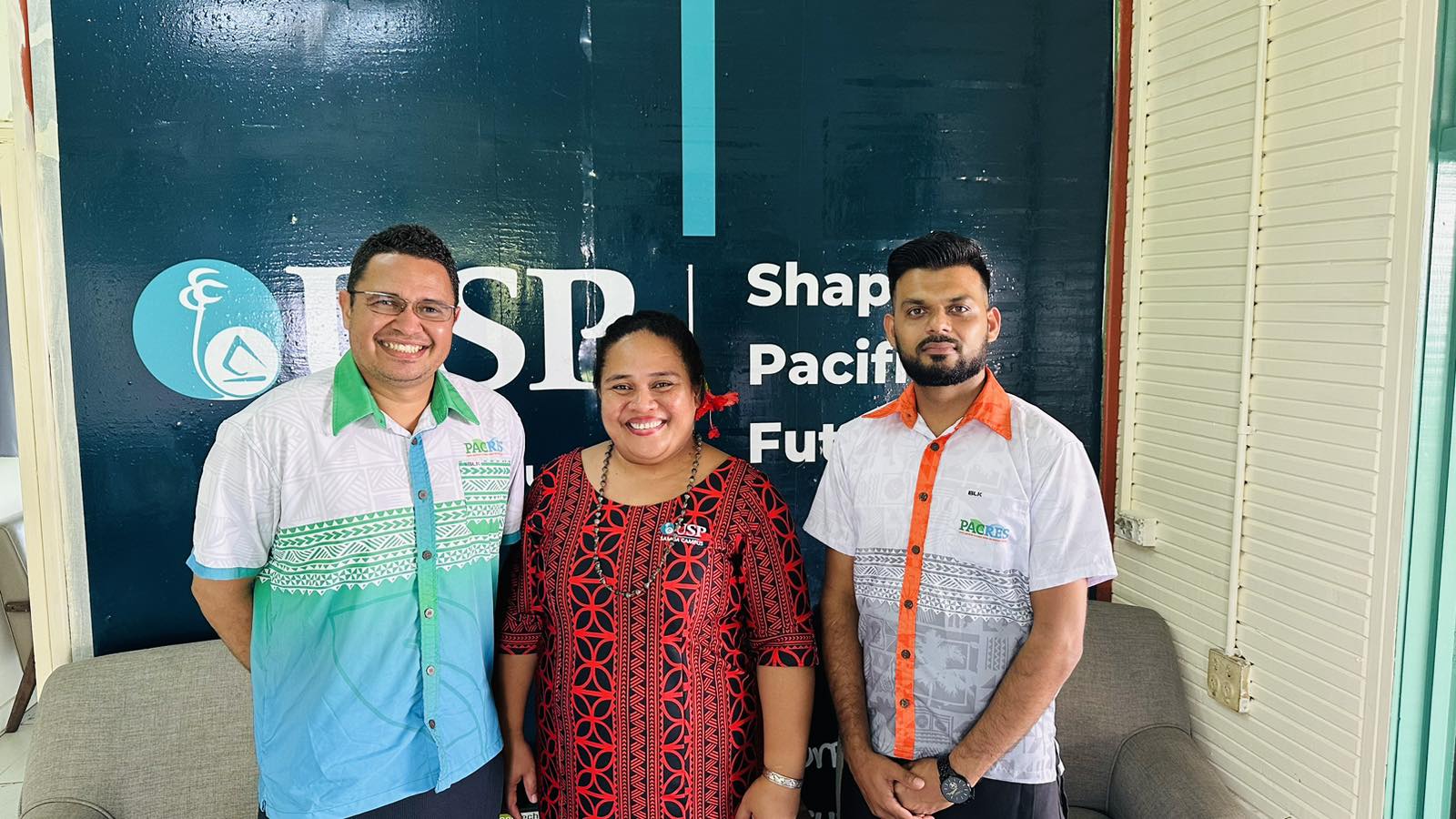Samoa’s Resilience Rising: The PACRES Journey in the Heart of the Pacific
28 September 2023

In the heart of the Pacific, the University of the South Pacific (USP) embarked on a mission funded by the European Union, known as the Intra-ACP GCCA+ Pacific Adaptation to Climate Change and Resilience Building (PACRES) programme. The aim was clear: to strengthen climate and disaster resilience in Samoa and the wider Pacific region. What unfolded was not just a project, but a transformative journey that left an indelible mark on communities and the environment.
The USP PACRES team recently concluded their visit to Samoa, where they engaged in consultations with essential PACRES beneficiaries and worked on compiling the final report for the project’s closing phase. This mission proved to be invaluable as it provided the project team with a platform to gather valuable insights, pinpoint challenges, and lay the groundwork for a sustainable trajectory for the project beyond its current phase. These lessons learned are pivotal in enhancing future capacity-building initiatives within the country and devising strategies to elevate the quality of future engagements.
Tootoooleaava Dr. Fanaafi Aiono-Le Tagaloa, Campus Director of USP Samoa, expressed USP’s enduring commitment to our communities, spanning several years of active engagement. She stated, “Through the capacity-building efforts of the USP PACRES component, the university has firmly established itself within the broader context of empowering and training our local stakeholders and community representatives.”
Furthermore, she added, “The pivotal role that USP plays in projects like PACRES is widely recognized and deeply appreciated by the community.” Dr. Aiono-Le Tagaloa emphasized, “Our successful collaboration with various stakeholders underscores the critical and indispensable nature of such partnerships in projects of this kind. This collaboration not only contributes to the effective execution of the project but also serves as a cornerstone of its long-term sustainability. By working closely with the climate change department, we are better equipped to address the urgent challenges posed by climate change and ensure that the positive impact of our initiatives continues to benefit our communities.”
Through the USP PACRES programme a series of project activities have been successfully carried out. These activities include conducting participatory needs assessments at the community, sub-national, and national levels. Sustainable agricultural training was completed with the participation of 27 individuals, comprising 8 women and 19 men. Additionally, a Community Integrated Management initiative was implemented through an awareness workshop, involving 50 participants, with 16 women and 34 men.
The project also focused on strengthening networks, raising awareness, and fostering dialogues on climate change among government, civil society organizations, and community representatives through another awareness workshop.
Furthermore, the distribution of Samoa’s National Climate Change Policy was successfully implemented. A significant ecological effort involved seedling planting across 43 communities. Moreover, training sessions on proposal writing and human rights were conducted as part of the project. Lastly, a noteworthy campaign to plant three million trees was initiated.
Recognizing the importance of sustainability in climate change projects, the PACRES program has proactively developed a sustainability strategy as it approaches its conclusion. This strategy encompasses multifaceted measures designed to preserve the knowledge and capacity cultivated during the project’s lifecycle, with a strong emphasis on fostering enduring collaboration with stakeholders.
To ensure the project’s long-term success, key components of this strategy include nurturing collaborative government partnerships, empowering local communities through ongoing capacity-building training sessions, and scaling up funding support. These measures are pivotal in ensuring the sustainability of grant writing training within the UNDP and the broader USP-PACRES initiatives, ensuring the continued availability of resources and reinforcing the project’s overall resilience. Such sustained financial support enables the project to maintain its capacity-building activities, equipping individuals and communities with essential grant-writing skills and empowering them to secure funding for their vital initiatives.
The pressing issue of climate change affecting Samoa’s agricultural sector underscores the importance of educating and training individuals about its impact and the benefits of crop diversification, especially root crops for food security. Further training of a similar nature is required to enhance food security in local communities.
As the final chapter of the PACRES program unfolds, the impact it leaves behind is undeniable. Communities are armed with knowledge, partnerships are forged in resilience, and the environment breathes a sigh of relief. In the face of climate change, this project is not just a success story; it’s a testament to the power of collaboration, education, and empowerment in building a climate-resilient future for Samoa and the Pacific.
The successful execution of the USP PACRES program owes its accomplishments to the invaluable collaboration and unwavering support of key partners, including the Ministry of Natural Resources and Environment (MNRE), the United Nations Development Programme, local communities, and the USP Alafua Campus. Together, they have played an instrumental role in realizing the program’s overarching objectives, which encompass the development of an integrated strategy to address Climate Change and Disaster Risk Management in the Pacific-ACP region.
The USP component of the EU-funded Intra-ACP GCCA+ PACRES programme is implemented in partnership with the Secretariat of the Pacific Regional Environment Programme (SPREP), the Pacific Community (SPC), and the Pacific Islands Forum Secretariat (PIFS).